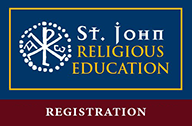Bulletins
November 25, 2012
Download the Bulletin as a PDFOur Lord Jesus Christ the King.
This Feast in His honor was instituted by Pope Pius XI in 1925 since “as long as individuals and states refused to submit to the rule of our Savior, there would be no really hopeful prospect of a lasting peace among nations. Men must look for the peace of Christ in the Kingdom of Christ” (Quas Primas).
Turning to Sacred Scripture, he points out that:
Christ himself speaks of his own kingly authority: in his last discourse, speaking of the rewards and punishments that will be the eternal lot of the just and the damned; in his reply to the Roman magistrate, who asked him publicly whether he were a king or not; after his resurrection, when giving to his Apostles the mission of teaching and baptizing all nations, he took the opportunity to call himself king (Matthew 25,31-40), confirming the title publicly (John 18,37), and solemnly proclaimed that all power was given him in heaven and on earth (Matthew 28, 18)…. What wonder, then, that He whom St. John calls the "prince of the kings of the earth" (Revelation 1,5) appears in the Apostle's vision of the future as he who "hath on His garment and on His thigh written 'King of kings and Lord of lords!'" (Revelation 19,16).
Lest your neighbors worry about the Catholic Church understanding herself to be “the kingdom of Christ on earth” it is worth noting that
this kingdom is spiritual and is concerned with spiritual things. That this is so the above quotations from Scripture amply prove, and Christ by his own action confirms it. On many occasions, when the Jews and even the Apostles wrongly supposed that the Messiah would restore the liberties and the kingdom of Israel, he repelled and denied such a suggestion. When the populace thronged around him in admiration and would have acclaimed him King, he shrank from the honor and sought safety in flight. Before the Roman magistrate he declared that his kingdom was not of this world. The gospels present this kingdom as one which men prepare to enter by penance, and cannot actually enter except by faith and by baptism, which, though an external rite, signifies and produces an interior regeneration. This kingdom is opposed to none other than to that of Satan and to the power of darkness. It demands of its subjects a spirit of detachment from riches and earthly things, and a spirit of gentleness. They must hunger and thirst after justice, and more than this, they must deny themselves and carry the cross.
And we can conclude that if the kingdom of Christ, then, receives, as it should, all nations under its way, there seems no reason why we should despair of seeing that peace which the King of Peace came to bring on earth - He who came to reconcile all things, who came not to be ministered unto but to minister, who, though Lord of all, gave Himself to us as a model of humility, and with His principal law united the precept of charity; who said also: "My yoke is sweet and my burden light." Oh, what happiness would be Ours if all men, individuals, families, and nations, would but let themselves be governed by Christ!
God bless you.
Fr. Christopher Pollard



